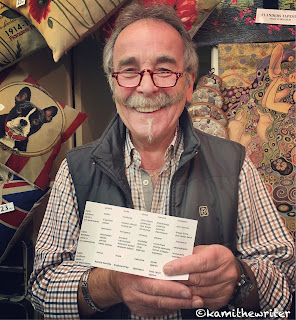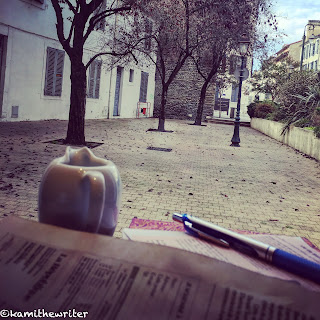Have I changed my mind in the aftermath?
After my initial reaction to the results, I was pretty sad (I expressed this in my Facebook post). I found Facebook frustrating that day because everyone was very opinionated and more divided than I anticipated. I dreaded viewing people’s gloating statuses, [but] people were nicer than I anticipated, there was a little back and forth, some passive aggressive statuses and lively discussions, that I foolishly engaged in until I thought better of it. I think I was a bad loser though.
I think my sadness stemmed from feeling that people weren’t sure why they were making the decisions they were; many voted to leave, but many couldn’t fully identify why. For me, the desire to remain was from taking counsel from a friend of mine who warned that Britain would experience a recession and how millions had been taken out of the country in the lead-up to the referendum, already. I read up on the arguments, I listened to news dominated by the referendum, and I asked for guidance on which way to vote. I felt that we
had chosen to exit much like trying to leave YouTube--where it asks if you’re sure and says ‘cancel’ or ‘exit’. It felt that it had happened too easily, but there’d be no way back in, once the decision was made. It felt so final. Which it is.
I felt the majority of people were going to vote to exit and had friends who did but weren’t sure why, so I wasn’t surprised at the outcome. What can only be described as propaganda had been bad leading up to the
referendum, and although it was a long time coming, I felt we didn’t do our homework, and a massive decision was placed in our hands.
I am unusual in that I have been brought up under the European Union, passed freely through countries, and lived in a few EU countries, something made far easier through being a European Union country. I felt like
many without a full grasp of what the EU even is or does gave that all up too easily.
I thought exiting was a bad idea because I didn’t feel the negatives outweighed the positives. I was, if I am honest, happy with the status quo and have benefitted from being part of the EU. Many people never
expressed an opposite opinion until the referendum was offered; nobody ever spoke of our EU membership until the last few months.
I wanted to remain, as I felt we were just fine being a part of the EU. I have benefitted greatly from being an EU citizen, living in France for four years, Germany for 3 prior to that, and working all over Austria. I
never once had to go through an intrusive medical exam, fill in a visa application, or jump through the hoops my American or Australian friends have had to. In retrospect, maybe my own reasons are naïve or misguided, but time will tell what the true implications of this decision are. Some of my ‘remain’ friends are less hopeful, but over the weeks I have been mindful that whatever the outcome, my trust is in a sovereign God.
It has been strange watching the government disintegrate and realize that they didn’t really have much of a plan B. I’ve heard one party, who focused on the fear mongering regarding mass immigration, back pedal after promising the £350M we currently put into the EU per week could be filtered into the National Health Service instead. It has felt like a farce--so many of the Labour party resigning and our own Prime Minister
stepping down.
Why do you think exiting was a bad idea? Is it bad for Europe, bad for the UK, or both and why?
Initially I felt it would be bad to leave, mainly for the UK. In the light of recent news stories (which are hard to wade through for truth), it seems like it is also bad for the rest of the EU--this is unchartered territory, we are the first to leave. Interestingly, countries who were happy trading with us are working to maintain that relationship, countries such as Germany--which gives me hope we may be okay. Sadly, it has created dissension with Scotland again (who almost 100% voted to remain). They have since talked of another referendum to become independent from England.
Funding that we as a country have received will now be withdrawn, and we have been told there will be an inevitable recession. A period of austerity is never a fun prospect. I feel less fearful as I don’t have a high paying job, I don’t drive an expensive car, I don’t have any investments, so I don’t have as much to lose as the people who are better off than me.
I didn’t anticipate the mess it was after the decision was made: people pitted against one another, petty arguments, our prime minister stepping down, and most of the Labour government (the shadow cabinet) resigning and trying to get their leader to resign. People we thought would take us through the Brexit, such as the prime minister, have stepped down, and others have refused to stand for leadership, and those that have are the best of a bad bunch. It seems that all bets are of’ and we have a storm to weather, yet a
lot of us are remaining calm. Maybe it’s our renowned stiff upper lip.
How I feel Post- Brexit
I feel less sad about the turn of events, not because nothing felt that different overnight, as there was still media focus on what is happening post referendum. Now I feel more resigned, I realized there was no
point agonizing over a decision that is made, and my initial sadness has resided. I disliked the mud slinging between people who voted to leave and people that voted to remain, though it has been interesting to hear the reasons why people voted either way, and I realize it certainly wasn’t black and white. I’ve been disgusted to hear that people have told non-British citizens to 'go home' and feel we have stooped to an all-time low. In an age of extreme political correctness, this is unusual, yet I feel is largely down to UKIP scaremongering about the amount of immigrants arriving in the UK and stretching our already tight health service and taking 'our' jobs. I keep waiting for this to just blow over.
I felt the referendum was clouded by ‘confusion and delusion’-- that was my opinion. This didn’t surprise me, but it was almost surreal to be living in the aftermath, and the 24th June felt like a bad dream. It divided
people, yet many didn’t fully understand the implications of their decision. Many expressed their certainty that they now had some extra control and that they would get what they wanted in a way they had never before. I think they were high on the victory of getting their way. Many wanted to leave the EU yet dictate their own agreements (these are my Facebook observations). Many felt we would become ‘great’ again and this was heralding a new time, a new season, a New Britain. This remains to be seen; I hope it is true. I am not fearful of such a government shake-up. Britain is a small island and has come through a lot worse, it is in our DNA and blood. How we deal with the next couple of years remains to be seen. Perhaps this is the change we need– I fear we have symmetry with the USA though, a leadership race with no clear candidate of promising potential. I fear we will both settle. I pray we do not. Again, time will tell.





























